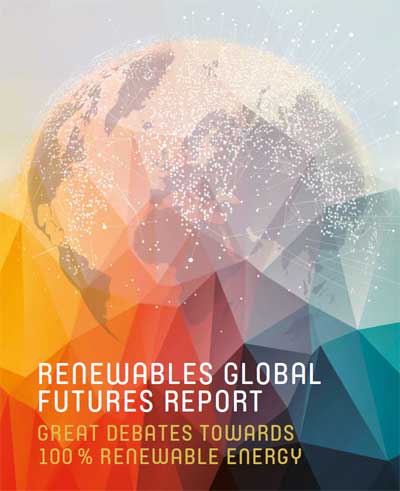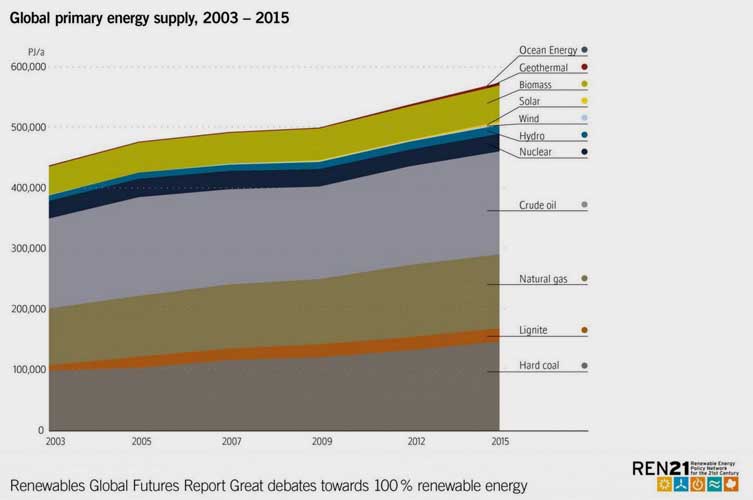REN21 launches “Renewables Global Futures Report: Great debates towards 100% renewable energy”
114 renewable energy experts from around the world share their views on achieving 100% renewable energy by 2050.
As sustainable energy experts from around the world gathered at the Sustainable Energy for All Forum in New York this week, the REN21 multi-stakeholder network released its latest report on the feasibility and challenges of achieving a 100% renewable energy future. The report analyses the views of 114 renowned energy experts from every region of the world, interviewed over the course of 2016. The results are clustered under topics defined as “12 Great Debates.”
Other key findings include:
- More than 70% of the experts interviewed consider a global transition to 100% renewable energy to be both feasible and realistic, with European and Australian experts most strongly supporting this view.
- There is an overwhelming consensus that renewable power will dominate in the future, with many noting that even large international corporations are increasingly choosing renewable energy products either from utilities or through direct investment in their own generating capacity.
- Numerous companies, regions, islands and cities have set 100% renewable energy targets.
- Nearly 70% of those interviewed expect the cost of renewables to continue to fall, beating all fossil fuels within 10 years’ time. Wind and solar photovoltaic are in fact already cost-competitive with new conventional generation in most OECD countries.
- Countries as diverse as China and Denmark are demonstrating that GDP growth can be decoupled from increasing energy consumption.
The report also identified a number of challenges, however:
- In some regions, most notably Africa, the US and Japan, experts were skeptical about reaching 100% renewable energy supply in their own countries or regions by 2050, largely due to the vested interests of the conventional energy industry.
- Drop-in solutions will not be sufficient to transform the transport sector such as the replacement of combustion engines with electric drives. A modal shift will be required, for example from road to rail.
- The lack of long-term policy certainty and the absence of a stable climate for investment in energy efficiency and renewables hinder development in most countries.
Arthouros Zervos, Chair of REN21, said: “When REN21 was founded in 2004, the future of renewable energy looked very different than it does today. Back then, no one could have imagined that in 2016: renewable energy would account for 86% of all new EU power installations; China would become the renewable energy powerhouse of the world; and more than half of global renewable energy investment would take place in emerging economies and developing countries. Calls then for 100 % renewable energy were not taken seriously; today the world’s leading energy experts are engaged in rational discussions about its feasibility, and in what time frame.”
Christine Lins, Executive Secretary of REN21, added: “This report presents a wide range of expert opinions, and is meant to spur discussion and debate about both the opportunities and challenges of achieving a 100% renewable energy future by mid-century. Wishful thinking won’t get us there; only by fully understanding the challenges and engaging in informed debate about how to overcome them, can governments adopt the right policies and financial incentives to accelerate the pace of deployment.”
- REN21 “Renewables Global Futures Report: Great debates towards 100% renewable energy”
- Download all Infographics









